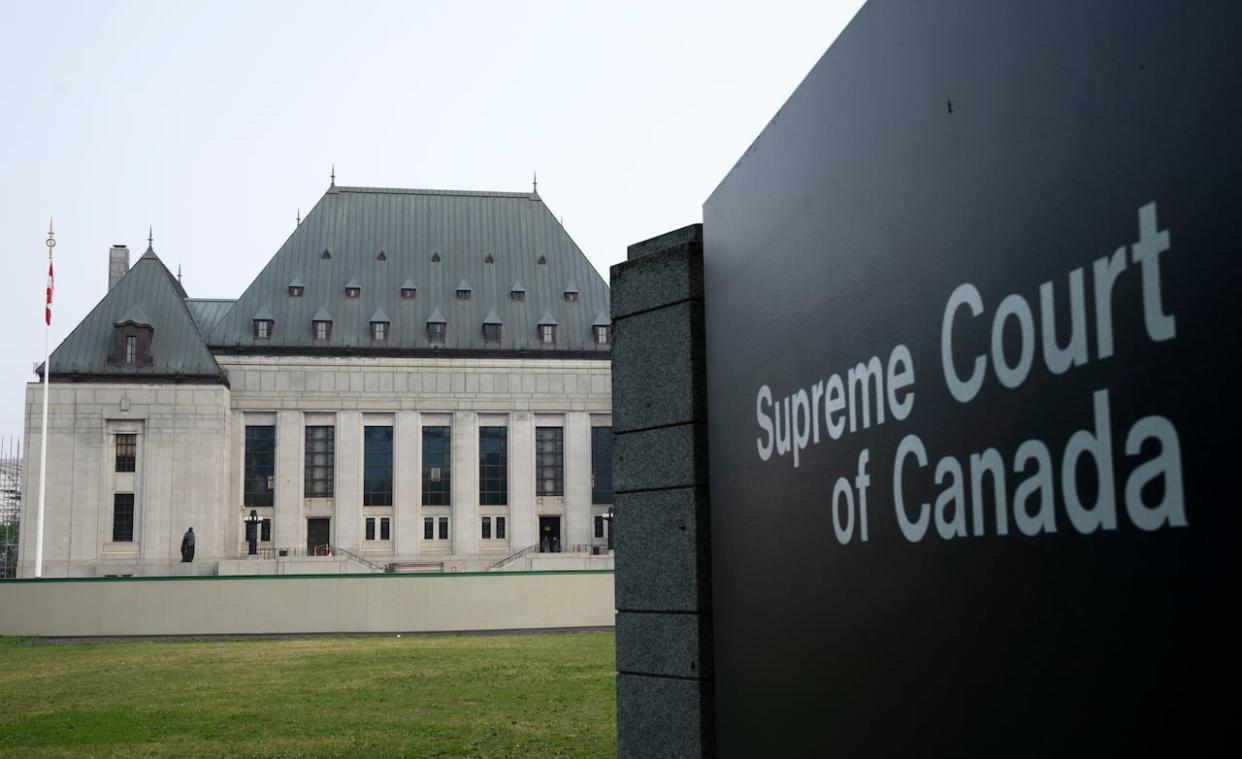Supreme Court rules Ontario public school boards are subject to Charter of Rights

The Supreme Court of Canada ruled Friday that public school boards in Ontario are an arm of government and cannot "disavow their constitutional obligations" under the Charter of Rights and Freedoms, regardless of the terms in a collective agreement.
The court delivered the ruling after hearing a case involving two public school teachers in Ontario who alleged their rights under section eight of the Charter — which protects them from "unreasonable search or seizure" — were violated by their school principal and board.
"Lower courts have analyzed whether the Charter applies to school boards and have drawn different conclusions," the court said. "The time has come to determine whether the Charter applies to Ontario public school boards."
The Supreme Court ruled Friday that "public education is inherently a governmental function" and "has a unique constitutional quality" because the Charter applies when government is involved.
While this decision likely will inform lower courts across the country in future decisions, the seven Supreme Court justices who heard the case did not examine how other provinces structure their public school boards, so the court said Friday's ruling only "relates to Ontario public school boards."
The case stems from an incident involving two teachers and the actions of their principal at a school in the York Region District School Board in the 2014-15 academic year.
According to an earlier Ontario Court of Appeal Ruling, which contains a more detailed history of the case, Grade 2 teachers at the Mount Joy Public School had concerns that one of their colleagues was getting preferential treatment.
One of the teachers, referred to in the ruling only as Ms. Shen, approached her union with the information and was told to keep notes. Shen started a log using her personal email account and then gave a second teacher, referred to only as Ms. Rai, access to the log.
The log could be accessed online but none of the information contained in the log was stored in a workplace computer.
Teachers disciplined
After the school principal, referred to in the ruling as Mr. Pettigrew, learned about the log from another teacher, he brought his findings to the board superintendent, who told him to speak with human resources. After doing so, the IT department searched the board's online files for evidence of the log but didn't find anything on the school's hard drives or Google drives.
The ruling says that when the search turned up empty, Mr. Pettigrew went into Ms. Shen's classroom after she had left for the day and touched the mouse pad on her school-provided laptop. The screen lit up and a document named "Log Google Docs" opened on the screen.
The ruling says Pettigrew read the document and used his mobile phone to take pictures of the almost 100 entries it contained. He then brought the images to the board superintendent, who told Pettigrew to confiscate the laptops. The laptops were then searched but because the document only lived in the cloud, nothing was found on either hard drive.
Both Shen and Rai were then given letters of discipline which said the teachers had used board technology to access and maintain a log during board time. The letters of reprimand were kept on their records for three years.
Shen and Rai launched a grievance through their union alleging a breach of their privacy rights. It went to arbitration. The arbiter sided with the school board.
The union took the decision to court in Ontario, which sided with the arbiter, saying the principal's search did not violate the Charter because Shen and Rai had no reasonable expectation of privacy in a work setting.
The Ontario Court of Appeal quashed the arbiter's decision and said the Ontario Court had made a mistake in deciding that the public school board was not subject to the Charter.
In its ruling, the Supreme Court of Canada said that "Ontario public school teachers are protected from unreasonable search and seizure in their place of employment under section 8 of the Charter."
"State actors cannot disavow their constitutional obligations, no matter the terms of the collective agreement," the ruling said.

